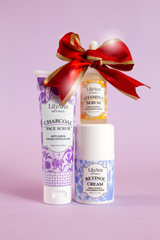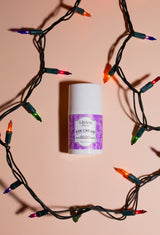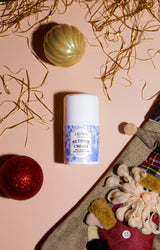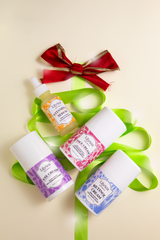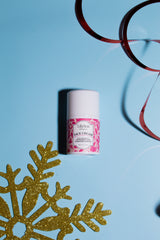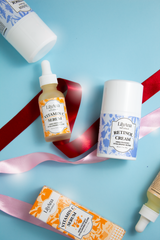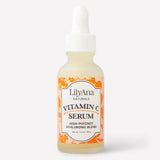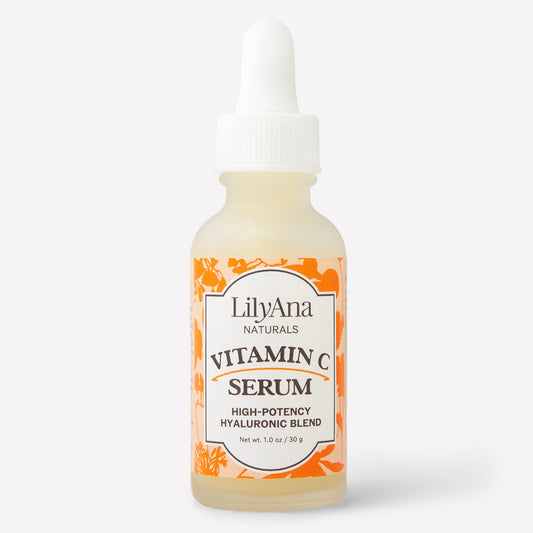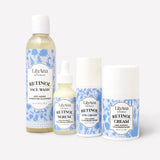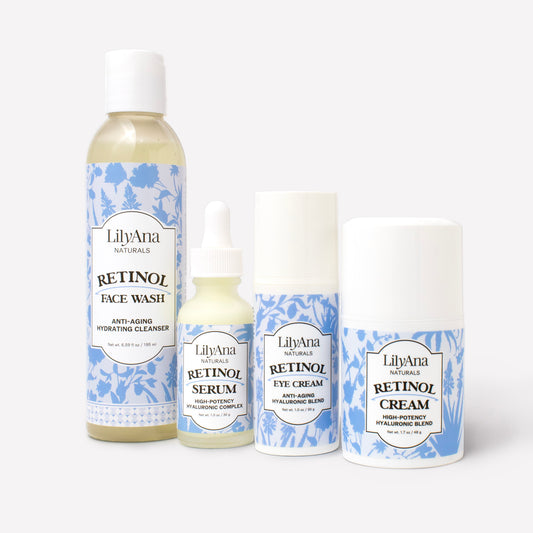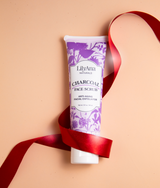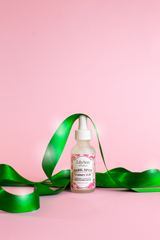Lavender essential oil came from a lavender plant. It may be applied onto the skin, orally consumed, or inhaled through aromatherapy. It is used to induce relaxation and sleep, and it may also aid in the treatment of some skin diseases.
Lavender oil is beneficial to the skin in a variety of ways. For example, it may assist with acne, skin lightening, and wrinkle reduction. People also use it to treat various common conditions and to help enhance hair health and digestion. The main ingredient, lavender, is an excellent choice for an essential oil to use on your skin.
Lavender is beneficial to the skin since it is soothing, mild, and nutritious. Lavender oil may help to decrease the appearance of blemishes and give your skin a young shine. It can also assist if you are prone to skin inflammation, sunburns, or mild skin irritations.
In this post, we will discuss the main benefits of lavender oil for your skin. Let’s get started.
Introduction to Essential Oils
Essential oils are extracts that come naturally from seeds, roots, stems, flowers, and other components. They've been around for a long time and are widely recognized for their medicinal and therapeutic properties.

They are produced from plant components such as leaves, herbs, barks, and rinds. Concentrating them into oils is done in a variety of ways. For example, you may include them in vegetable oils, lotions, or bath gels. You might also smell them, massage them on your skin, or use them during your bath. Some evidence indicates that they may be beneficial if used correctly.
Scientific research and tendencies toward a more holistic approach are paving the way for families to reinvent healthcare directly in their own homes in today's contemporary society. This is fantastic news!
Let's face it, with the errors that have occurred in hospitals and with prescription medicines. Yet, it is a beautiful alternative to the risk that exists. Taking control of your family's health back into your own hands is a gratifying effort that you should look into. Many families are increasingly turning to natural holistic treatment.
Simple scents like lavender, chamomile, and rosewater may help you relax. You may inhale these oils or apply diluted versions on your skin. Scientists believe they function by delivering chemical signals to regions of the brain that influence mood and emotion. Although these fragrances may not relieve all of your tension, the perfume may help you relax.
History of Lavender: Where It All Started
Lavender has been used for over 2500 years. Lavender was utilized for mummification and scent by the ancient Egyptians. The Romans utilized lavender oils for cooking, washing, and more. Lavender oil was also utilized in soap by the Romans, who took it with them throughout the Roman Empire.
Lavenders were women who took in laundry for rent in Medieval and Renaissance France. Lavender was used to wash the clothes, which were then hung to dry on lavender plants. Lavender was used to fragrance drawers, add scent to the air, and protect against illness and treat wounds.
It was also known for its antibacterial and therapeutic properties during the time of the Romans. Lavender was utilized by the Ancient Greeks to treat sleeplessness and back pain. In the bible, Lavender is linked to as "spikenard”. In John 12, Mary is believed to have anointed Jesus' feet with the expensive "spikenard ointment" and cleaned His feet with her hair.
The ointment, according to Jesus, shouldn’t be sold but was to be preserved until the day of his burial. In the 17th century, lavender was also employed as a cure for the Great Plague in London. Glove manufacturers in France who were allowed to scent their products with lavender avoided cholera in the 16th century.
Lavender preserve and fresh lavender flowers were needed for the royal meal by Queen Elizabeth of England. In 19th century England, Queen Victoria grew interested in lavender, and English lavender became fashionable. The Victorians utilized lavender in their gardens, and both queens used Yardley's of London lavender goods.
Lavender is now grown commercially in countries such as France, England, Italy, Australia, New Zealand, the United States, Canada, and many more. Lavender blossoms in late June in the south of France, in Provence, and fills the rural markets with its lovely aroma. The pleasant smell of lavender pervades flower festivals and artisan fairs.
Lavender is a really fascinating plant infused with medicinal properties and a very pleasing aroma. It is effortless to cultivate, needing just full light and excellent drainage. Lavender is a highly resilient plant that can even withstand neglect.
After establishing themselves, the majority are extraordinarily flexible and like to bloom in rocky soil with a high pH and, ideally, in drought-like circumstances. They dislike "wet feet." Planting seedlings rather than seeds will provide the best results. Choose from a wide range of cultivars, but keep your growing conditions, soil, and climate in mind.
7 Benefits of Lavender Oil for Skin
1. Acne-Control
Lavender oil kills germs, which may help to prevent and cure acne outbreaks. In addition, when you apply it to your skin, it unclogs pores and decreases irritation. The steps are simple, just wash your face first then you can mix lavender oil together with coconut oil and apply it to your skin.
Lavender oil may also be used as a face toner by combining two drops with one teaspoon of the famous skin care essence, the witch hazel. Soak the cotton pad and gently massage it over your face. Argan oil may help decrease inflammation in the case of a very persistent pimple. Just apply one drop of lavender oil and one drop of argan oil on a pimple atleast twice a day.
2. Skin Lightening
Because it decreases inflammation, lavender oil may help with skin whitening. In addition, it may help to lighten discoloration, incredibly dark patches. Lavender oil aids in the reduction of blotchiness and redness.
It may also provide you with a natural shine. Lavender oil is praised for its antioxidant and anti-inflammatory properties, making it a strong candidate for inclusion in any clean skincare regimen. Antioxidants are known to combat free radicals, which may cause havoc on your skin by affecting the mitochondrial activity and hastening the aging process.
For your night time routine, mix a drop or two of lavender into your usual moisturizer to give your skin an additional antioxidant strength with a touch of soothing aromatherapy before going to bed.
Before proclaiming this flowery combination a miracle oil, it's essential to remember that additional rigorous scientific studies are needed before being used as a prescription. However, the research done to put lavender oil to the test has shown some reasonably remarkable health advantages.
3. Anti-Inflammatory Properties
Lavender oil may be used to alleviate painful inflammation. The oil's beta-caryophyllene works as a natural anti-inflammatory and it can assist in relieving the inflammation.
To cure burn inflammation, mix one to three drops of lavender oil with one to two tablespoons of coconut oil. This combination is famous and it may be applied up to three times per day.
A lavender oil spray may help soothe a sunburn. Grab ¼ cup of aloe vera juice, mix 10 to 12 drops of lavender oil, add 2 tablespoons of distilled water, and jojoba oil in a spare bottle and apply it on the affected area.
First, shake the container before spraying it on your sunburn. Then, apply the spray twice or three times each day until the sunburn recovers and aids with stress management.
Lavender oil's calming properties do not end there. Researchers discovered that lavender oil might compete with a prescription drug for general anxiety in one trial.
One set of volunteers received the anxiety drug Lorazepam for six weeks, while another group got an oral dose of lavender oil. After the experiment, both groups reported almost similar reductions in anxiety—45 percent and 46 percent, respectively.
4. Repellent for Insects
Lavender oil has a dual purpose when it comes to bug attacks. First, it works as an insect repellent and may alleviate irritation caused by a bite. Second, lavender oil is used in several commercial insect repellents.
Mosquito and insect repellent candles and sprays may also be utilized. You may place the candle outside after adding seven drips. To make an insect repellant spray, mix 1 glass of water and four drops of lavender oil in a spray container then shake to combine. You can spray it all over your body and clothes before going out.
Redness, irritation, and discomfort are all symptoms of insect bites. They may get contaminated at times. Lavender oil soothes bug bites by killing germs and decreasing irritation. It also has a natural pain-relieving effect.
To cure an insect bite, mix one or two drops of lavender oil with a carrier oil, such as coconut oil. For at least twice a day, apply the mixture around the bitten area.
5. Fight Fungal Infections
The similarities between yeast infections, athlete's foot, and ringworm are all various types of fungal infections, which arise when bothersome fungus grows in or on moist areas of the body. Lavender oil contains antibacterial and antifungal qualities, which may aid in the healing process.
In addition, one lab researcher found it to be effective against candida which is the causative agent of yeast infections. Take note that lavender oil should not be used directly to your vagina since the refined version is extremely powerful and may sting or burn.
Nevertheless, these studies help researchers learn about the characteristics and possible applications of chemicals. Still, more concrete study is needed to know more about how lavender oil can be used for treating fungal infections.
6. It Assists You in Catching Some Serious Sleep
In any case, the basis of a healthy lifestyle begins and ends with sleep. So if you find yourself twisting and turning at night, lavender oil may be your savior, according to research. One piece of research discovered that smelling lavender oil many times before bed improved the proportion of deep sleep duration in healthy men and women. It is also helpful to people who experience sleeplessness at night.
7. It is a wound-healing agent.
One animal research discovered that when administered topically, lavender oil healed wounds faster than other treatments, such as saline and iodine, over a five-day period. Researchers attribute this occurrence to an increase in the amount of EGF, or epidermal growth factor, in the epidermis, which is required for tissue regeneration.
How to Apply Lavender Oil on the Skin
The application of lavender oil is determined by the condition being treated. You may apply it on your skin as a lotion with or without a carrier oil. If you're applying it to a damaged area of your skin, we prefer using a cotton pad since it's noted to be hygienic. You may apply the oil straight on wrinkles and dry skin with your hands.
Lavender oil is known to have different uses and advantages. It's usually used topically for skin and hair health, but techniques may vary according to your preferences. Since it's incredibly concentrated, two or three drops should be enough.
Lavender oil may also be taken as a tablet or used in aromatherapy steam. While lavender oil is generally harmless, it may cause pain in some people. If you notice any unfavorable side effects, discontinue the use of the oil.
If you want to reduce anxiety or get a good night's sleep, placing your oil in a diffuser is your best option. One of the most common methods to benefit from the fragrance of lavender is via dispersion. The process of diffusing essential oils entails utilizing a tiny instrument to spread oil particles into the air, allowing for simple inhalation.
If you don't want to diffuse, a few deep inhales of the fragrance before bed or whenever you need a moment of peace. You can even make the ideal soothing herbal bath with a few sprays of lavender to soak away your worries.
Other Lavender Oil FAQs
1. How to use Lavender Essential Oil?
-
Massage: In 50ml of massage oil base, add up to 25 drops of lavender or a combination of complementary oils. We suggest that you use the Luxury Massage Blend or Sweet Almond Oil.
-
Aromatherapy Bath: 5 to 10 drops of essential oil in a full bath, agitate to distribute. Use in combination with Bath Dispersant to prevent essential oils from floating on top of the water.
- Dispersing: Add 5 to 10 drops of essential oil to your diffuser - the correct quantity varies on your equipment and the size of the area you're diffusing in, so consult your diffuser handbook for details.
2. Does Lavender Essential Oil Help with Sleep?
Lavender Essential Oil is popular for its relaxing and calming qualities and its effectiveness in assisting individuals to go asleep. We suggest putting a few droplets on your pillow before night or diffusing them around your bedroom.
Should I diffuse Lavender Essential Oil alone or in combination with other essential oils? What are the most refined Essential Oils to use in a Lavender Diffuser?
Lavender Essential Oil is excellent on its own, but it also mixes beautifully with either of the "citrusy" essential oils like Lemon, Orange, and Lime.
Takeaway
Lavender oil may be used to treat a variety of skin conditions. It naturally decreases inflammation, alleviates discomfort, and cleanses the skin's surface. Lavender oil may be used on your face, legs, and hands.

Take some time for yourself, balance your skin’s moisture, minimize breakouts, and enjoy all-around youthful skin with the help of Lavender Oil or Lavender infused skin care.
